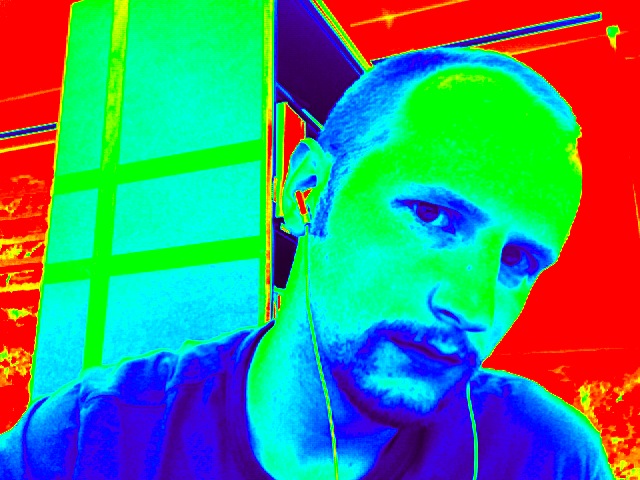We (Megan, Meghan, Nicole, Colleen, Sally and I) stayed in a hostel in Boston. We were all (not Sally for some unknown reason) in a co-ed room with 14 beds in it. I don't think that at any one point all the beds were filled, but there was a constant influx of people. Anyway, the majority of the people in our room were all speech pathologists or audiologists going to the convention. There were two girls (I don't remember their names ... another Megan I think and someone else) and three other guys (Mario, George, and Patrick). To make a long story short - we did a lot of stuff together.
About the convention: at any time people had three options to choose from they could attend sessions (lectures by experts), visit the exhibition hall (a giant room [literally the size of a football field] filled with companies that sell therapy products, and companies looking for employees, or the attendees could browse posters (individual oral presentations of an individual's research).
So, George was from Greece, and was here presenting a poster on augmentative and alternative communication in the case of a Greek man with a traumatic brain injury (by no means a ground breaking presentation, however, speech pathology is very new in Greece, so it is new research in Greece). Mario presented a poster, however, I don't remember what it was on, quite possibly something to do with voice rehabilitation after a laryngectomy (surgical removal of larynx secondary to laryngeal cancer).
Anyway, mostly, I perused the posters. I found that quite enlightening - especially that in the not too distant future I will be doing my own poster presentations. So, not surprisingly I spent a lot of time around the posters pertaining to stuttering. This is how a poster session works - you either have a specific poster you want to see, or walk around looking for interesting posters, when you find the one you're looking for you read the poster and ask the author to walk you through the research. They give their 1 minute prepared schpeel, and then you ask questions. So, once again making a long story short, I read a lot of research, some of which I thought was really really cool, other that I wondered why the authors wasted their time (poorly designed methods etc). But even better then that, I met a great deal of other people who stutter. Up until this past weekend I knew very few people who stutter (clients not included). But, I met students doing posters, people browsing posters, and even professors and researchers doing posters who all stutter too. The range of severity was incredible. There are two that come to mind (the two extremes) a woman who said she stuttered, but I never heard her stutter, and a young man (about my age) who had a lot of prolongations and repetitions. He was using a lot of block modification (a therapy technique).
I think that the most encouraging thing was engaging in conversation about stuttering, stuttering research, stuttering therapy and all the secondary characteristics that go along with it. (I learned that I have a little be it tremor in my left cheek when I stutter - a woman from England told me that...I didn't know that before). Anyway, enough on that - just know that I am that much more sure that going on to get my Ph.D. is the right course of action for me.
I also interviewed. I went into the convention with the mindset that I would not find a job (rest assured, I have not signed any papers). I also spoke with professors at some of the schools I am considering for Ph.D. work.
I volunteered by giving directions, and standing in an information booth all day on Friday (to cover the cost of my registration) - I would not do that again. I missed so much stuff. If I were able to pick the time and location of my volunteering then I would consider it, but I missed so much that I'm not sure it was worth it.
So many stories, so little time. I need sleep. I will hopefully add stories later.
Ah, but I miss Boston. If I could afford to live there I would live there in a heartbeat. The size, culture, mass transit, location, history are all wonderful. I miss it. I think I could afford it with a roommate ...

